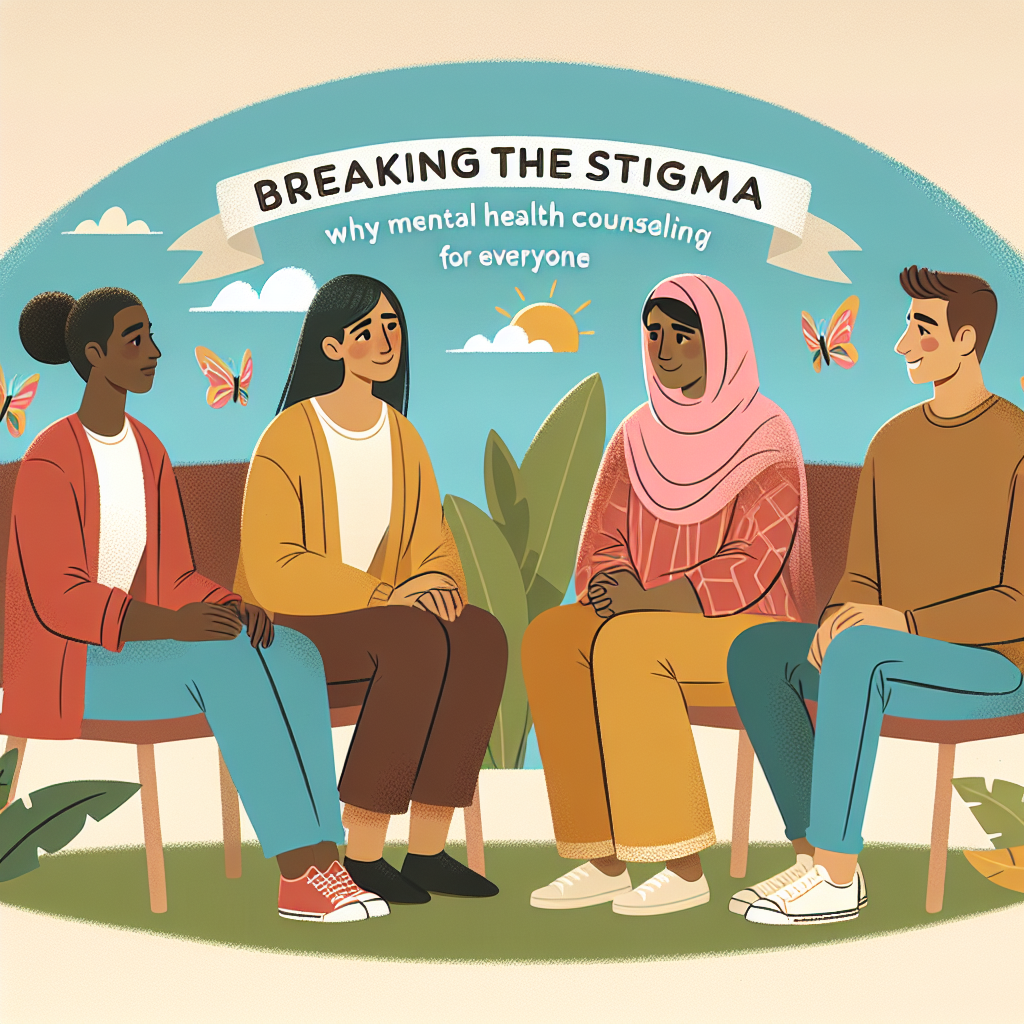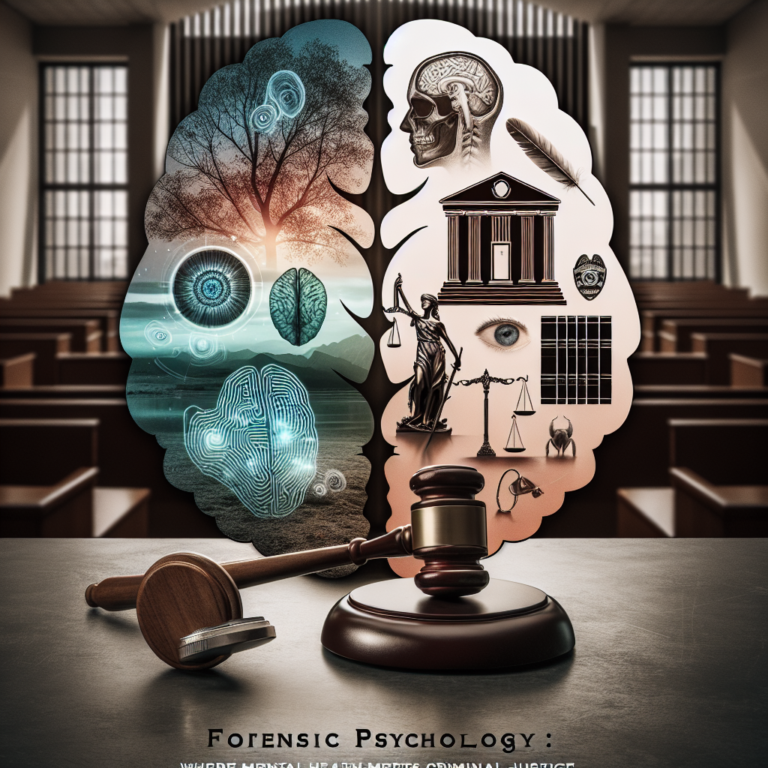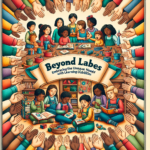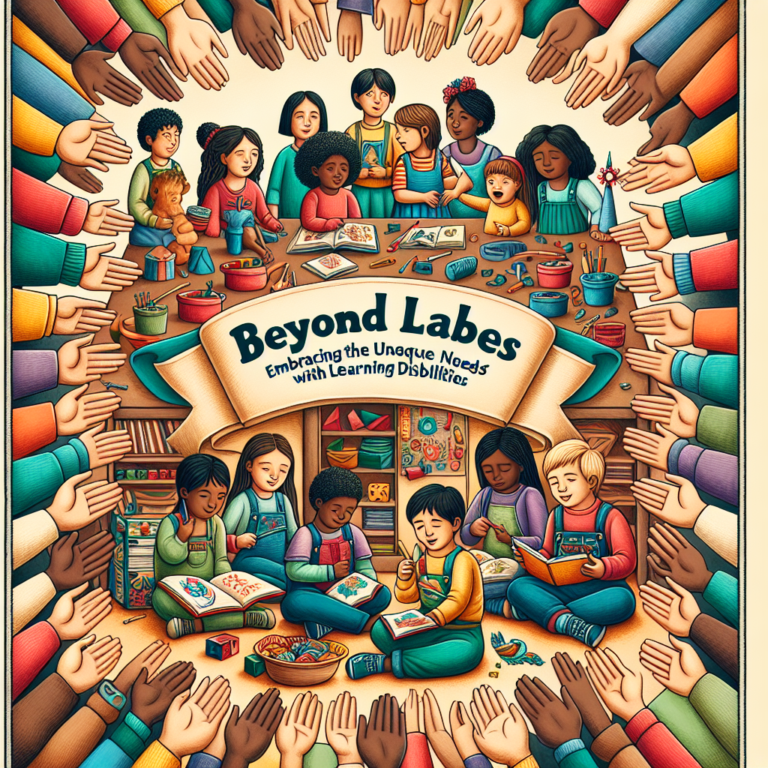
Introduction
In today’s fast-paced world, mental health issues are becoming increasingly prevalent, yet the stigma around seeking help for these issues remains a significant barrier. Every year, millions of individuals struggle with anxiety, depression, and other mental health disorders, often feeling isolated and ashamed. But here’s the truth: breaking the stigma around mental health counseling is not just essential for those in crisis; it’s vital for everyone. Mental health is an integral part of our overall well-being, and counseling can empower us to lead healthier, more fulfilling lives. This article dives deep into why counseling is essential for all and how we can collectively break the stigma that surrounds it.
Understanding Mental Health and Counseling
What is Mental Health?
Mental health encompasses our emotional, psychological, and social well-being. It affects how we think, feel, and act, influencing how we handle stress, relate to others, and make choices. Mental health is vital at every stage of life, from childhood and adolescence through adulthood.
The Role of Counseling
Mental health counseling provides a professional and supportive environment where individuals can explore their feelings and thoughts. Counselors utilize various therapeutic techniques to help clients understand their challenges, develop coping strategies, and foster resilience. This process is not merely for those diagnosed with mental illnesses but is equally beneficial for those experiencing the normal stresses of life.
Key Statistics Highlighting the Importance
Consider these powerful statistics that illustrate the significance of mental health counseling:
| Statistic | Data |
|---|---|
| Prevalence of anxiety disorders | Affects 31.1% of adults at some point in their lives (NIMH) |
| Depression’s impact on global health | An estimated 264 million people worldwide suffer from depression |
| Benefits of counseling | 80% of clients who receive counseling report reduced symptoms (APA) |
Breaking the Stigma: Common Misconceptions
Despite the overwhelming support for mental health services, misconceptions persist, hindering access. Here are some common myths that fuel the stigma:
Counseling is Only for the "Crazy": This myth implies that only severely mentally ill individuals need help. In truth, many people visit counselors for everyday challenges such as stress, relationship issues, or life transitions.
Talking About Problems Makes Them Worse: Some believe that discussing feelings can intensify issues, bracing us against vulnerability. In fact, open conversation often clarifies thoughts and invites healing.
Counselors Only Listen: Many think counselors just passively listen. On the contrary, they actively engage with clients using evidence-based methods to instigate positive change.
- Seeking Help is a Sign of Weakness: This pervasive notion falsely equates vulnerability with failure. In reality, seeking help is a courageous step toward growth and self-improvement.
Case Study: Lisa’s Journey
Lisa, a 28-year-old marketing professional, struggled with anxiety. After experiencing a panic attack during a presentation, she hesitated to seek help, fearing judgment from colleagues. Upon finally reaching out to a counselor, Lisa discovered the transformative power of counseling. Through cognitive-behavioral therapy (CBT), she learned to manage her anxiety, leading to improved performance at work and a renewed zest for life.
Analysis: Lisa’s case highlights how breaking the stigma around mental health counseling can lead to profound personal growth, illustrating that seeking help is both courageous and beneficial.
The Benefits of Mental Health Counseling
Counseling creates pathways to healing and insight, showcasing benefits that every individual can reap:
Improved Coping Skills: Counselors equip clients with tools to handle life’s stresses more effectively, facilitating resilience.
Enhanced Self-Awareness: Counseling offers a space for self-reflection, enabling individuals to understand their thoughts and emotions better.
Strengthened Relationships: By improving communication skills and emotional intelligence through counseling, individuals can build healthier relationships.
Increased Productivity: Better mental health often translates into improved focus and efficiency in both personal and professional settings.
- Greater Emotional Regulation: Counseling can help individuals understand and express their emotions, leading to healthier responses to stress and conflict.
Case Study: Carlos’s Transformation
Carlos, a 35-year-old father of two, struggled with stress and anger management, impacting both his home and work life. After engaging in family counseling, he developed healthier communication strategies. Now, not only has he become more patient with his children, but he reports improved relationships with co-workers as well.
Analysis: Carlos’s story underlines the essential nature of counseling in improving interpersonal dynamics, showcasing that mental health services can yield benefits far beyond individual therapy.
How Society Can Help Break the Stigma
Breaking the stigma around mental health counseling requires collective effort. Here are actionable steps communities can take:
Education and Awareness Campaigns: Community workshops and seminars can educate the public about mental health, dispelling myths and encouraging open dialogue.
Normalize Conversations: By promoting mental health conversations in schools, workplaces, and community spaces, we can foster a culture that values emotional well-being.
Share Personal Stories: Public figures and everyday individuals sharing their journeys can inspire others to seek help and validate the importance of mental health.
Support Employers Offering Mental Health Benefits: Encourage workplaces to provide mental health resources and support for employees. This professional backing can validate the importance of mental wellness.
- Advocate for Policy Changes: Support initiatives that increase funding for mental health services and ensure access to care for all individuals.
Overcoming Barriers to Access
While breaking the stigma surrounding mental health counseling is essential, we also need to address barriers that prevent individuals from accessing these vital services. Here are some common hurdles and potential solutions:
Financial Constraints: Counseling can be expensive, and many individuals lack insurance. Community mental health centers and sliding-scale services offer alternatives.
Cultural Differences: Different cultures may have varying views on mental health. Tailoring programs to respect cultural diversity can make counseling more accessible to diverse populations.
Location: Rural communities often face a shortage of mental health professionals. Telehealth services have emerged as innovative solutions, allowing individuals to connect with counselors remotely.
- Fear of Judgment: The fear of being perceived negatively can deter individuals from seeking help. Normalize mental health discussions through positive storytelling and media representation.
The Role of Technology in Mental Health Counseling
In recent years, technology has played a pivotal role in making mental health counseling more accessible and engaging. Here’s how:
Teletherapy: Virtual counseling sessions allow individuals to receive support from the comfort of their homes, reducing stigma and increasing access.
Mental Health Apps: Apps like Headspace and Calm provide mindfulness tools, offering users strategies to manage stress and anxiety.
- Online Support Communities: Forums and online groups have emerged where individuals can share their experiences without the fear of being judged, creating a sense of belonging.
Case Study: Mark’s Online Experience
Mark, who lives in a remote area, struggled to find local counseling options. Upon discovering teletherapy platforms, he engaged in regular sessions that transformed his approach to mental wellness. The ability to seek help from anywhere removed the barriers he previously faced.
Analysis: Mark’s journey shows how technology can effectively break down geographic and societal barriers, making mental health counseling available to a broader audience.
Conclusion
Breaking the stigma around mental health counseling is essential for fostering a society that values the well-being of every individual. Counseling is not just for those in crisis; it provides invaluable tools for all of us, promoting resilience and personal development. By educating ourselves and our communities, we can create a culture where seeking help is viewed as a strength, not a weakness.
Let’s embrace the idea that breaking the stigma: why mental health counseling is essential for everyone is a truth that can change lives. Counselors are ready to help; all we need to do is encourage ourselves and others to take that first courageous step toward mental wellness.
FAQs
1. Is mental health counseling only for people with diagnosed mental illnesses?
No, mental health counseling is for everyone. Many people benefit from counseling for everyday challenges, stress management, and personal growth, regardless of a formal diagnosis.
2. How do I find a mental health counselor?
You can start by asking your primary care doctor for a referral, searching online directories, or contacting local mental health organizations that can guide you to professionals in your area.
3. What can I expect during my first counseling session?
In your first session, you will typically meet your counselor, discuss your reasons for seeking help, and set goals for future sessions. It’s also an opportunity for you to ask questions about the process.
4. How long does counseling take to be effective?
The duration of counseling varies widely depending on individual needs and goals. Some people may notice improvements after just a few sessions, while others may benefit from longer-term support.
5. How can I support a friend who might need counseling?
Encourage open dialogues about mental health and let them know it’s okay to seek help. Offer to help them find resources or accompany them to appointments if they are comfortable.
By fostering a community that values mental health, supporting one another, and embracing the essential nature of counseling, we are taking significant steps toward breaking the stigma. It’s time to prioritize emotional well-being and empower ourselves and those around us to seek the healing and support we all deserve.
















